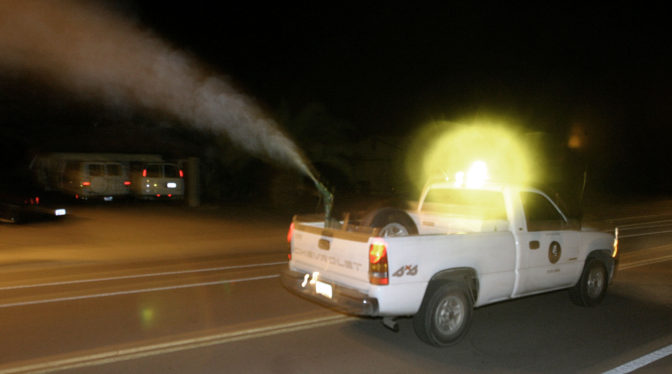
Enlarge / Eddie Robles drives a Maricopa County Vector Control fogging truck through a neighborhood August 4, 2004, in Tempe, Arizona. Areas known to have high populations of mosquitos are being fogged at night to kill the bug and help prevent the spread of the West Nile virus. (credit: Getty | Jeff Topping/)
As the COVID-19 pandemic raged around the country in the summer of 2021, another virus—an endemic one spread by mosquitoes—thrashed residents of one Arizona county, causing a record-shattering outbreak that left 101 people dead, according to a study published today by Arizona health officials.
The virus is West Nile, which constantly lurks in hundreds of bird species in the US and spreads to humans via mosquito bites. Most people infected—about 8 out of 10—will have no symptoms. But the unlucky remainder will develop a nondescript illness with fever, headache, body aches, joint pains, vomiting, diarrhea, or rash. Fatigue and weakness from a symptomatic case can linger for weeks to months. A small fraction of the symptomatic cases will develop a serious, life-threatening neuroinvasive case, such as meningitis or encephalitis.
West Nile Virus (WNV) was discovered in the US in 1999 and first detected in Arizona in 2003, when just 12 cases were recorded. Since then, the state’s yearly totals have often been around 100 cases, with Maricopa County always claiming the lion’s share. The outbreak record was set in 2004, quickly after its discovery. That year, the state saw 391 cases, 355 of which were from Maricopa.
Read 6 remaining paragraphs | Comments



